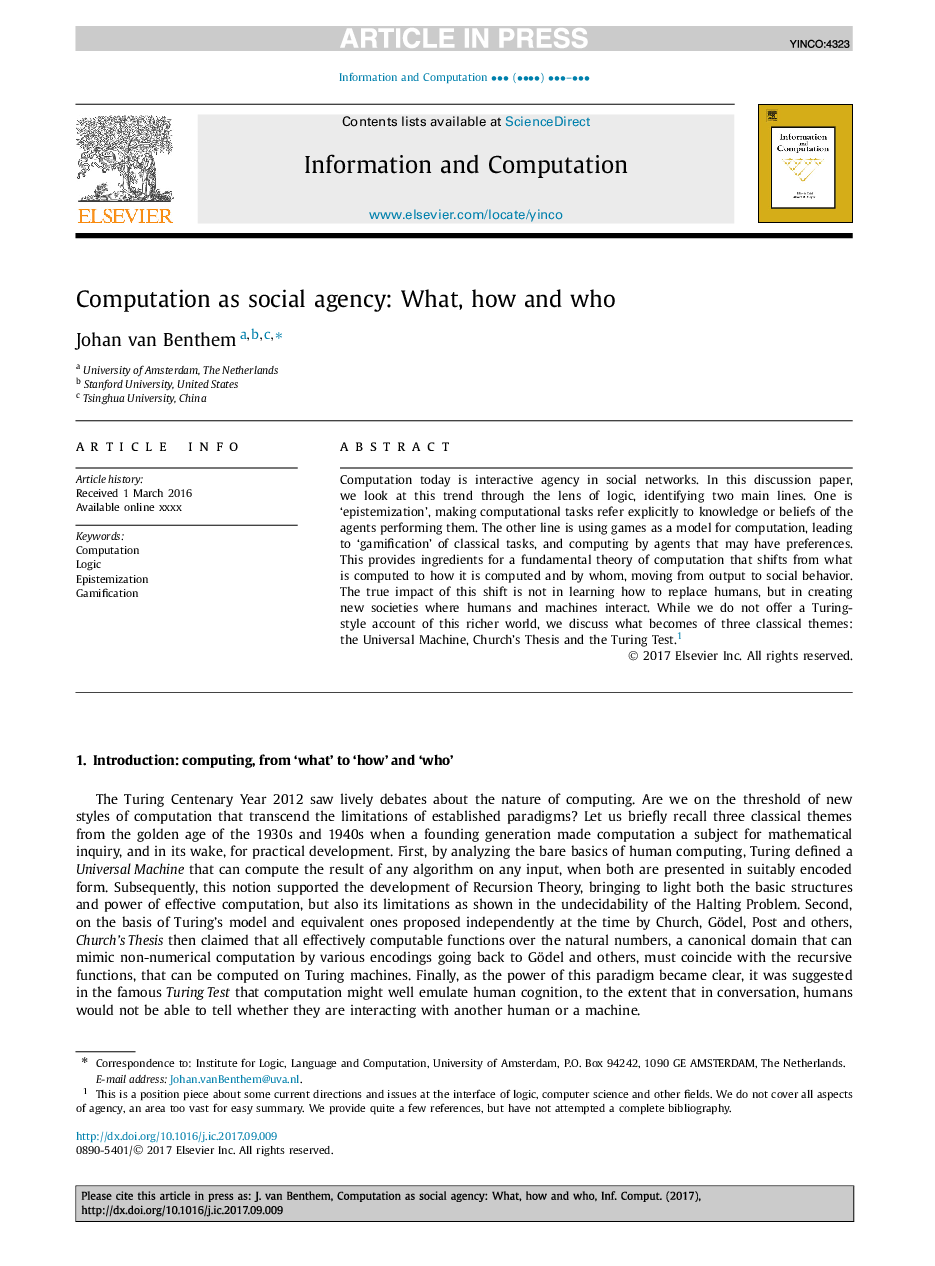| Article ID | Journal | Published Year | Pages | File Type |
|---|---|---|---|---|
| 6873763 | Information and Computation | 2018 | 17 Pages |
Abstract
Computation today is interactive agency in social networks. In this discussion paper, we look at this trend through the lens of logic, identifying two main lines. One is 'epistemization', making computational tasks refer explicitly to knowledge or beliefs of the agents performing them. The other line is using games as a model for computation, leading to 'gamification' of classical tasks, and computing by agents that may have preferences. This provides ingredients for a fundamental theory of computation that shifts from what is computed to how it is computed and by whom, moving from output to social behavior. The true impact of this shift is not in learning how to replace humans, but in creating new societies where humans and machines interact. While we do not offer a Turing-style account of this richer world, we discuss what becomes of three classical themes: the Universal Machine, Church's Thesis and the Turing Test.1
Keywords
Related Topics
Physical Sciences and Engineering
Computer Science
Computational Theory and Mathematics
Authors
Johan van Benthem,
